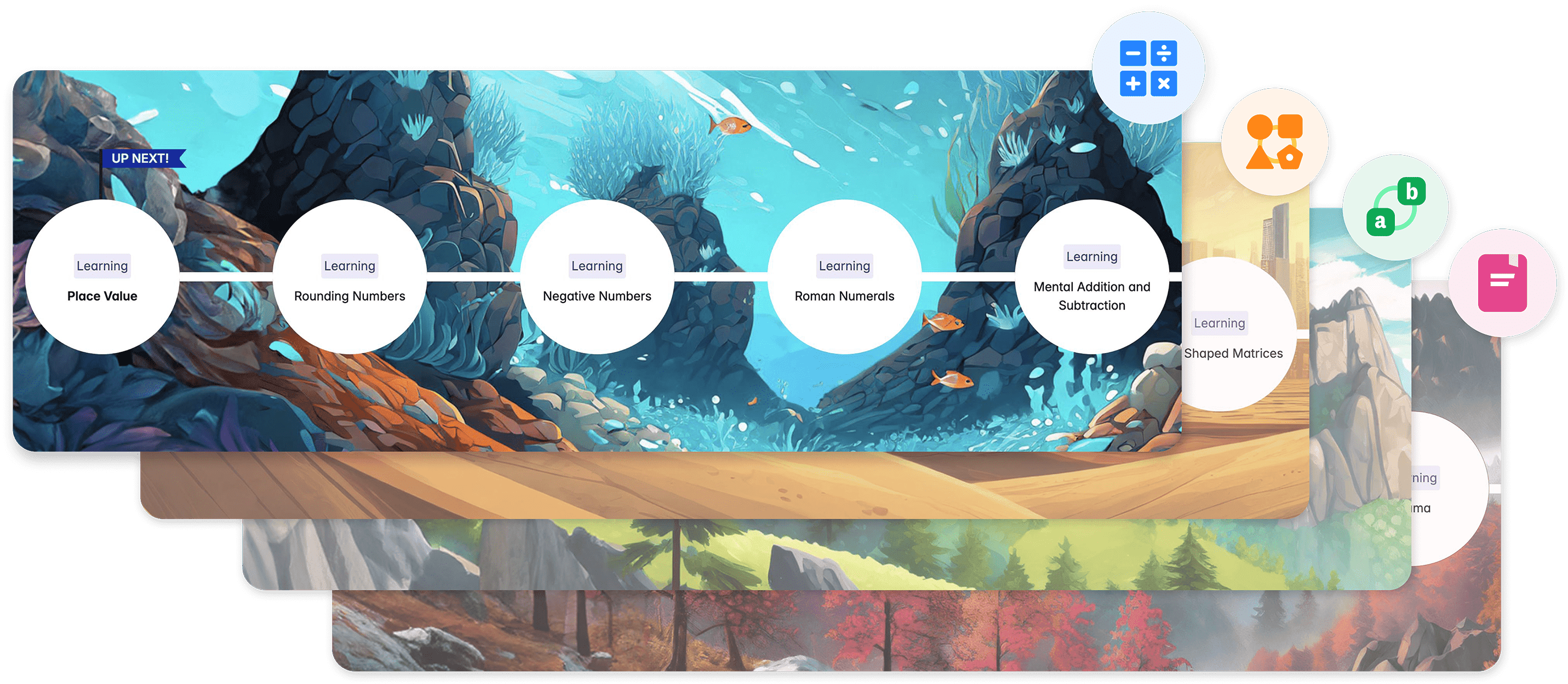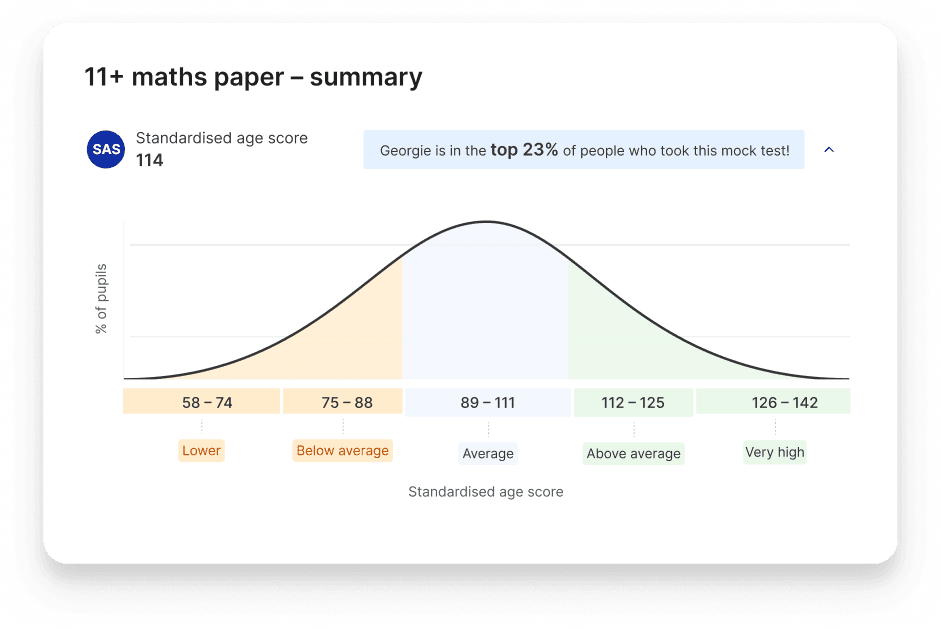A term-by-term guide to Year 5 if you're applying to selective schools
By Atom | Jul 21, 2025, 3:44 PM
Year 5 is a crucial stage in your child’s journey to a selective school. Whether you’re aiming for a grammar school or an independent school, preparation is key, and how you structure your child’s learning throughout the year can greatly impact their success in the 11+ or entrance exams.
In this term-by-term guide, you’ll find:
A clear breakdown of what to focus on each term in Year 5
Practical guidance to support your child’s learning and exam prep
Tips to help you and your child stay confident, organised and on track throughout the year
Autumn Term: Build strong foundations
At the beginning of Year 5, you still have a full year before most selective school exams begin. This is the time to focus on mastering the curriculum, building good learning habits and identifying early gaps in learning.
1. Focus on curriculum learning first
Before introducing exam-style practice, it’s essential that your child has a solid understanding of the core content covered in English, maths, verbal reasoning and non-verbal reasoning.
A common mistake parents make is introducing mock tests and practice papers too early. Your child must be familiar with the curriculum before you begin using mock tests.
The goal at this stage is to develop subject knowledge and confidence. Children who are familiar with the content will feel far more comfortable applying their skills under exam conditions later.
Atom is here to help with this!
Atom’s Learning Journeys are available to guide your child through each topic, step-by-step. They’ll cover every topic they need to know for their target schools’ exams in time for exam day.

Pictured: Example learning islands. On Atom Home, each learning island guides your child step by step through personalised topics, turning exam prep into a clear, visual journey.
Encourage your child to spend time in the Lesson Library before starting activities. It has on-demand videos, interactive lessons, and clear helpsheets for every topic. Teachers designed these resources to explain tricky concepts and support your child’s learning at their own pace.
Aim for 20-30 minutes per day, five days a week, to make consistent progress.
2. Establish a consistent routine
Creating a positive study routine early on helps to build motivation and stamina. Use Atom’s weekly activity suggestions to structure your child’s time, and celebrate small wins to keep them engaged.
Keep sessions short and focused to maintain concentration.
Try to study at the same time each day, whenever your child is most switched on. This could be before school, after school or before dinner, whatever works best for your family!
Use the track page on Atom Home to monitor your child’s progress, identify areas for improvement, and adjust their learning priorities accordingly.
3. Make reading a priority
Reading has countless benefits for your child’s learning, from boosting vocabulary and comprehension to developing focus and imagination. However, it’s a skill that takes a while to develop and can only improve with consistent practice over time.
That’s why it’s important to introduce reading into your child’s routine as early as possible. Whether it’s ten minutes before bed or a quiet moment after school, regular reading will pay off in the long run, especially when it comes to 11+ reading comprehension and verbal reasoning.
If reading becomes part of your child’s weekly rhythm early in the Autumn term, you’ll notice the difference later, with less stress, more confidence, and stronger exam performance.
Encourage your child to read fiction and non-fiction from a range of genres and authors.
Ask questions to develop deeper thinking and understanding, such as “Why do you think the character made that decision?” or “What do you think will happen next?”
Explore Atom’s recommended reading lists for age-appropriate suggestions.
Christmas Holidays: Keep momentum with light-touch learning
The festive season is a great time to relax and recharge, but a little structured learning will help to keep knowledge fresh and reduce the chances of your child encountering the “forgetting curve.”
1. Make learning manageable
During the holidays, aim for 3 to 4 short weekly sessions, around 20 minutes each. Atom’s platform is designed to help children make progress in small, regular bursts.
Use Atom’s Exam Prep Plan to guide your child’s learning.
Prioritise topics your child has recently found challenging.
Reward effort, not just results, to keep motivation high.
2. Mix learning with fun
You can incorporate reasoning skills into family games to keep learning light but effective.
Scrabble builds verbal reasoning and vocabulary.
Jigsaw puzzles and Lego help develop non-verbal and spatial awareness.
Battleships and logic puzzles support strategic thinking.
Download our festive learning activities for free.
We have Christmas-themed maths worksheets available for Years 3 to 6.
Spring Term: Introduce exam technique
As the spring term begins, you’ll be about halfway through the year. Your child should now have a good understanding of the curriculum and be ready to start developing exam skills.
1. Start practising with mock tests
With Atom Home, your child can access unlimited mock tests and practice papers, all tailored to your chosen schools. Each one mirrors the subjects, formats, and question types they’re likely to encounter, making preparation more targeted and effective.
Unlimited access means gradually building your child’s stamina, starting with shorter practice sessions and progressing to full-length mock exams.
Each paper is automatically marked, providing instant insights into performance. With our new OMR technology, you can simply photograph your child’s paper test and upload it to Atom, no manual marking needed.
After each test, review the results together on the Track page. Focus not just on scores, but on identifying specific topics or question types where your child might need further support.
Most importantly, treat mock tests as a learning tool, not a pass or fail benchmark. The goal is to build confidence, strengthen time management, and ensure your child feels fully prepared for the real exam.
2. Understand performance through SAS
After each mock test on Atom Home, you’ll receive a Standard Age Score (SAS). Many selective schools use SAS scores in their entrance exams to see how your child is performing compared to other pupils in the same year group.
The SAS considers your child’s age in years and months, ensuring their score is fairly benchmarked against peers of the same age. This is the same method many grammar and independent schools use when assessing 11+ exam results.
A SAS of 100 represents the national average for a child’s age.
A SAS of 120 or above typically places your child in the top 10% of their age group.
A SAS of 140 is the maximum score.
These insights are incredibly valuable for identifying your child’s current level, tracking progress, and highlighting which subjects or skills may need extra attention. By understanding their SAS, you can refine your child’s revision strategy and make sure their preparation remains focused and effective as exam day approaches.

Pictured: A child's standardised age score from an 11+ maths mock test on Atom Home, showing how they compared to other children who took the same test.
3. Register for school exams
Many selective schools open registration for their entrance exams during the spring or early summer.
Visit your target school’s website to check key dates and deadlines.
Atom’s admissions pages provide detailed guidance on exam formats and requirements for grammar schools.
Easter Holidays: Boost literacy and deepen thinking skills
The Easter break offers time to consolidate learning and strengthen literacy, which plays a vital role in English and reasoning papers.
1. Set a reading challenge
Ask your child to read a new book and discuss it with you. This will help develop skills like comprehension, inference, and critical thinking.
You could ask:
What was the main character’s motivation?
How would you describe this story to a friend?
Would you change anything about the ending?
You might even create a mini book club as a family to keep it interactive and enjoyable.
Again, refer to Atom’s recommended reading lists for helpful suggestions of age-appropriate books your child can read!
Summer Term: Fill gaps and build confidence
In the final school term, the focus should be on closing any remaining learning gaps and preparing for the final stretch of the school year.
1. Plan an end-of-year review
Sit down with your child to reflect on the year so far and plan how to use the remaining time effectively.
Use Atom’s Progress and performance reports to identify topics that need more attention.
Revisit the Lesson Library for videos and helpsheets on tricky subjects.
Schedule weekly extra practice sessions to build fluency.
Encourage your child to focus on:
Reading questions carefully
Working efficiently without rushing
Reviewing answers when time allows
Exam technique – make sure they know how to correctly write their answers.
Many selective schools require pupils to complete answer sheets accurately under time pressure. To understand how to fill these in correctly, read our article: How to fill in 11+ answer sheets correctly: a step-by-step guide for parents.
If your child finds time management tricky, support them with regular timed exercises and simple pacing strategies, such as working to short timers or checking the clock at key milestones. With consistent, calm practice, they’ll build the skills they need to approach exam day with confidence and composure.
Set your child up for success with Atom Home
Year 5 is your opportunity to build a strong academic foundation and guide your child towards exam confidence. A structured, term-by-term approach will ensure steady progress and reduce stress in the lead-up to exam day.
Ready to support your child through Year 5?
With Atom Home, you’ll get:
Personalised learning journeys with exam content tailored to your target schools’ tests
A full library of high-quality, curriculum-aligned lessons
Unlimited practice tests, including online tests and downloadable practice papers
Automatic marking and detailed performance reports
Expert guidance for parents throughout the journey
